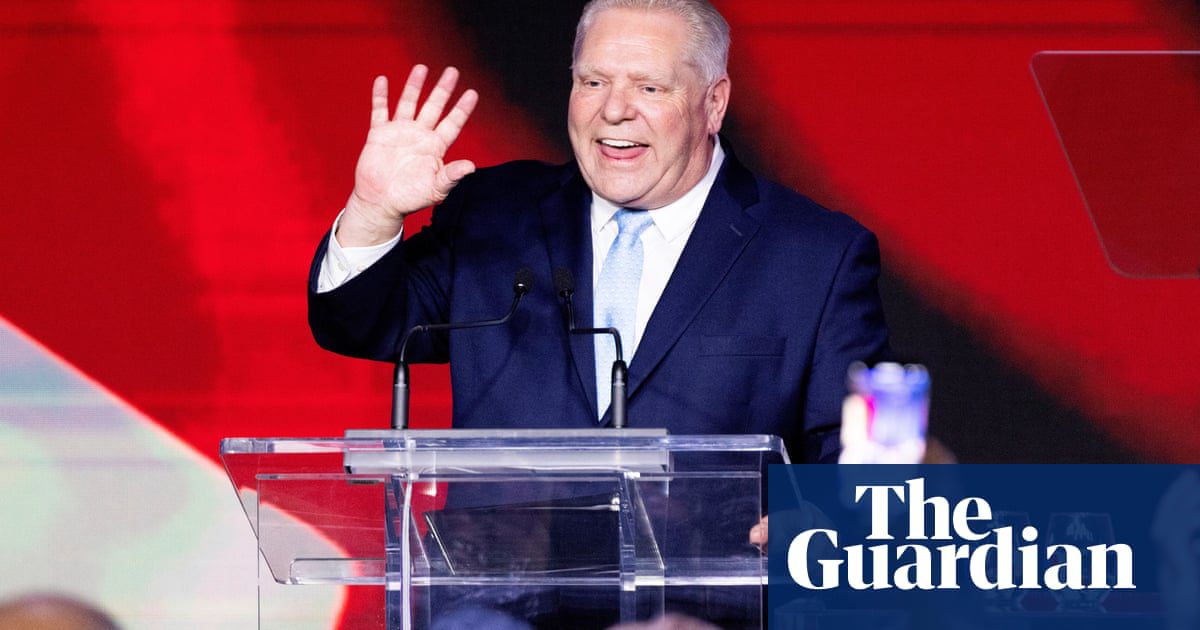
Doug Ford, the current premier of Ontario, Canada, has successfully led his Progressive Conservative party to victory, marking an impressive third consecutive term in office.
As projected by the Canadian Broadcasting Corporation (CBC), the Progressive Conservatives secured a commanding 43% of the popular vote.
In his victory speech, Ford emphasized the importance of unity in confronting challenges, stating, “As we face the looming threat of tariffs from Donald Trump… I will collaborate with all levels of government and across political lines, as it requires a comprehensive Team Ontario approach to defend our interests.”
Trump has previously threatened to impose 25% tariffs on goods from Canada and Mexico, which could significantly impact Ontario, a key manufacturing region dependent on exports to the US.
Ford opted for an early election—more than a year ahead of schedule—hoping to secure a stronger public mandate to combat Trump’s potential tariffs against Canada. Analysts like Laura Stephenson, a political science professor at Western University, noted that the early call was a strategic move to solidify his majority.
His opponents faced challenges in redirecting voter focus towards the controversies surrounding Ford and the pressing issues within the province. With approximately 14 million residents, Ontario, which comprises 35% of Canada’s population, is grappling with healthcare inadequacies, with around 2.5 million residents lacking a primary care provider, an increase from 1.8 million in 2020.
Winter elections are uncommon in Ontario, and on the day of voting, many residents were still recovering from recent snowstorms. According to Elections Ontario, the voter turnout was recorded at 42.62% just after 10 PM local time.
Trump has suggested that he could leverage economic pressure to force Canada into becoming the 51st state. His influence is palpable in Canadian politics, affecting both provincial and federal levels, with a general election anticipated later this year.
Throughout the campaign, Ford sported a “Canada is not for sale” hat and made two trips to Washington, D.C. to advocate against US tariffs.
The results of Ontario’s election may present favorable outcomes for the ruling Liberal party in Ottawa. According to Semra Sevi, a politics professor at the University of Toronto, these results highlight how external elements—like Trump’s tariffs—play a crucial role in shaping the political landscape and influencing voter concerns, coinciding with a resurgence of the federal Liberals after a period of decline.
Source: Reuters









